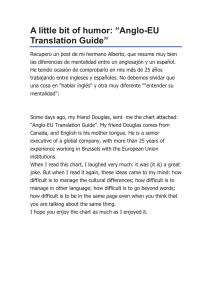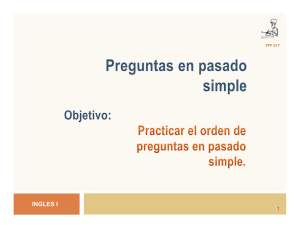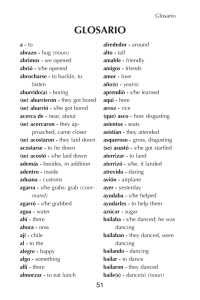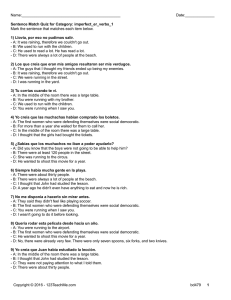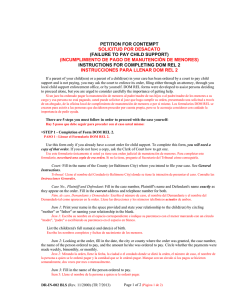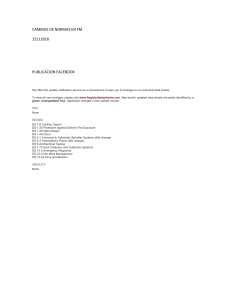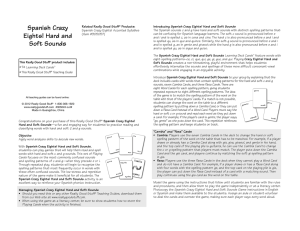Summary Reported Speech Test
Anuncio
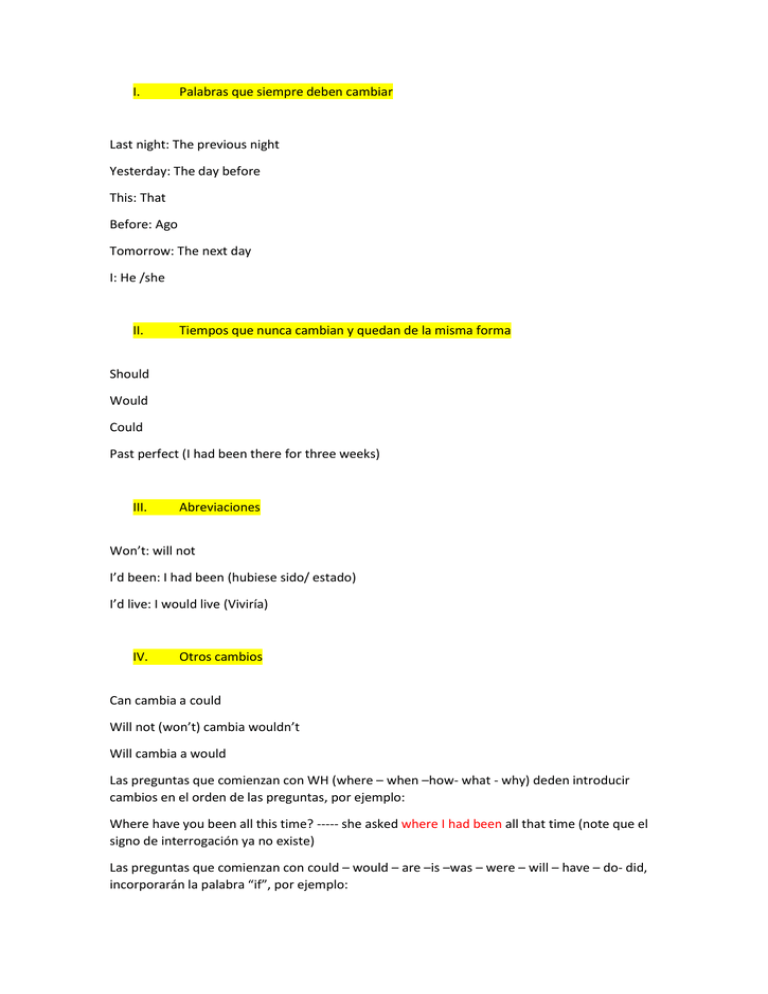
I. Palabras que siempre deben cambiar Last night: The previous night Yesterday: The day before This: That Before: Ago Tomorrow: The next day I: He /she II. Tiempos que nunca cambian y quedan de la misma forma Should Would Could Past perfect (I had been there for three weeks) III. Abreviaciones Won’t: will not I’d been: I had been (hubiese sido/ estado) I’d live: I would live (Viviría) IV. Otros cambios Can cambia a could Will not (won’t) cambia wouldn’t Will cambia a would Las preguntas que comienzan con WH (where – when –how- what - why) deden introducir cambios en el orden de las preguntas, por ejemplo: Where have you been all this time? ----- she asked where I had been all that time (note que el signo de interrogación ya no existe) Las preguntas que comienzan con could – would – are –is –was – were – will – have – do- did, incorporarán la palabra “if”, por ejemplo: Could you bring the money? ----- She asked if I could bring the money (el orden también cambia y el signo de interrogación desaparece). V. Ejemplos de tiempos Past perfect: I had travelled (Yo había viajado) - you had eaten - he had worked - we had done they had gone – she had ridden, etc. Present Perfect: I have ridden (Yo he paseado), you have eaten, we have worked, they have done, he has gone, I have travelled, she has written, etc. Past continuous: I was travelling (Yo estuve viajando), she was eating, they were working, you were studying, etc. Past perfect continuous: I had been working (yo había estado trabajando), he had been travelling, you had been eating, she had been studying, they had been writing, etc. Present continuous: She is working (ella está trabajando), they are copying, etc. Past continuous: She was working (Ella estuvo trabajando), they were travelling, etc. VI. Pasos Present simple to past simple Past simple to past perfect Past perfect to past perfect Past continuous to past perfect continuous Present perfect to past perfect Present continuous to past continuous
